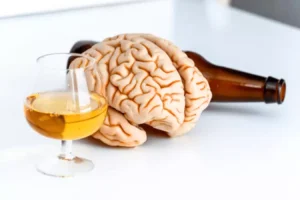Pinco şirketi, Türk oyunculara sağladığı avantajlı promosyonlarla dikkat kazandırıyor. Bilhassa ödemesiz promosyonlar, kullanıcıların hiçbir para yatırma önceden vermeden oyun deneyimi deneyimlemelerini temin ediyor. İlgili rehberde, Pinco uygulamasında söz konusu biçim bonusların hangi şekilde uygulandığını, nasıl kazanılabileceğini ve gerçek ödüle ne şekilde aktarılabileceğini basamak basamak paylaşıyoruz. Bununla birlikte her veri, oyuncu dostu bir tarzla ve basit göstergelerle zenginleştirilmiştir.
Ödemesiz kampanya, kullanıcılara herhangi bir para vermeden sunulan ödül türüdür. Bahsi geçen bonuslar ekseriyetle ilk defa gelen üyeleri özendirmek için sunulur. Pinco bu bağlamda bir hayli eli açık hareket etmektedir, bunun sayesinde oyuncular doğrudan platforma giriş olmakla sabit bir değer ödül edinilebiliyor. Söz konusu kampanyalar, bazen bedava oyun hakkı, az düzeyde kredi ya da özgü aktivitelere spesifik kampanyalar biçiminde sunulabilir. Oyuncu gözünden en çok kritik fırsat, en ufak finansal kayıp üstlenmeden oyun alanını inceleme edebilmesidir.
Pinco’da Yatırımsız Bonus Ne şekilde Elde edilir?
Pinco sistemine dahil olmak hayli zahmetsizdir. İlk hareket itibariyle pinco tr erişim bağlantısı aracılığıyla siteye bağlanmanız gerekir. Giriş panelde “Derhal Üye Ol” ya da “Hesap Aç” seçeneğini tıklayarak kayıt alanını doldurabilirsiniz. Alanları tamamlayıp doğruladıktan sonra profilinize otomatik olarak depozitosuz bonus yüklenebilir. Bazı durumlarda ilgili ödülü kazanmak amacıyla elektronik posta onayı veya telefonunuza gelen doğrulama kodunu girmeniz lazım olabilir. Promosyonlar hesabınıza birkaç dakika içinde geçer.
Promosyon Biçimleri ve Gereklilikleri
Pinco’da değişik kategoride depozitosuz bonuslar mevcuttur. Bu fırsatların başında:
- Hediye Slot hakkı (Ücretsiz Spins): Çoğunlukla popüler slot içeriklerinde geçerlidir.
- Para Ödül: Oyun hesabınıza tanımlanan ve slotlarda kullanılabilecek oyun parası.
- İlk bakış Bonusu: Seçili oyunları göz atmak için verilen bonuslardır.
Bütün promosyonun tanımlı çevrim kuralları vardır. Varsayalım, elde ettiğiniz 100 liralık promosyonu maddi şekilde kullanabilmek sebebiyle on katı bahis denemeniz zorunlu olabilir. Dolayısıyla pinco giriş daima bonus gerekliliklerini iyi şekilde okumak gereklidir. Cep oyuncular bazında sunulan uygulamalar aracılığıyla, mobil durumdayken yine de bonuslardan istifade etmek yapılabilir. Pinco markasının özgün cep app’i olan pinco uygulaması, aynı anda Android ayrıca iOS cihazlar bazında mevcuttur. Uygulamayı yetkili internet adresinden rahatça yükleyebilir ve kısa sürede kurulum başlatabilirsiniz. Cep üyeler bazen yalnızca mobil platform aracılığıyla verilen ekstra yatırımsız promosyonlara da kullanabilirler. Bunun yanında mobil arayüz yapısı, girişi fazlasıyla kolaylaştırmakta ve etkili kaliteli bir etkileşim getirmektedir.
Pinco Türkiye erişimi ve Hesap onayı
Güvenilir bir oturum yapmak için sürekli pinco türkiye giriş sayfasının en yeni versiyonunu seçmeniz gerekir. Resmi siteye ulaştıktan sonra giriş aşamaları tamamlandığında kullanıcı hesabınız etkin şekle yükselir. Doğrulama aşaması sırasında email doğrulaması, mobil mesaj doğrulaması veya resmi belge tanımlama örneğinde destekleyici süreçler talep edilebilir. Ancak yatırımsız promosyonlardan kullanmak için sadece ana doğrulamaları uygulamak yeterli sayılır. Ek olarak, tek kişi çoklu profil açarak promosyon elde etmeye yönelirse böyle bir sistem üzerinden tespit edilerek durdurulabilir.
Bonuslardan kazandığınız kazançları çekmek istiyorsanız birkaç koşullara uymanız zorunludur. Öncelikle, ödemenizin oynama kurallarını tamamladığınızdan kontrol edin. Ardından pinco transfer işlemi menüsüne göz atarak transfer metodunuzu uygulayın. Pinco, banka transferi, e-cüzdanlar ve kripto varlık alternatifleriyle para çekme çözümü verir. Transferler ekseriyetle bir gün içinde bitirilmektedir. Lakin birinci kazanç talebinde ek kontroller gerekebilir. Kontrol bitirildiğinde ödemeniz risksiz bir formda profilinize geçirilir.
En Etkili Yöntemler ve Göz Önünde Bulundurulması Gerekenler
Yatırımsız bonusları son derece avantajlı şekilde kullanmak için belirli yöntemler oluşturmak önemlidir. Başta, bonus tanımlanan içerikler seçeneklerinden en çok kazanma oranı oranına bulunduran seçenekleri kullanın. Böylece, başarı olasılığınızı yükseltecektir. Devamında, çevrim gerekliliklerini uygulayın ve her basamağı not edin. Ek olarak, taşınabilir app’i (pinco uygulama) kullanarak uygulamaya özel kampanyaları takip etmeyi ihmal etmeyin. En kritik konu ise, fazladan kayıt başlatma ya da yanıltıcı stratejilere kullanmamaktır. Pinco, adil kumar politikası çerçevesinde hileli hareketleri anında saptayabilir.
Ayrıntı Tablosu: Pinco’da Ücretsiz Teşvik Genel Bakış
| Teşvik Çeşidi |
Kazanım Şartı |
Oynama Oranı |
Ödeme Limiti |
| Bedava Dönüş |
Giriş akabinde otomasyonlu |
20x |
200 Türk Lirası |
| Finansal Bonus |
Mail doğrulaması |
25 katı |
₺300 |
| Akıllı cihaz App Bonusu |
pinco uygulaması indirimi |
15x |
₺150 |
Taze Üyeler için Davranışsal Avantajlar
Depozitosuz teşvikler tek başına ekonomik yönden değil, ek olarak davranışsal olarak da katılımcılara önemli faydalar getirir. Henüz tecrübesiz yeni internet kumar deneyimi geçirecek kullanıcılar için, kayıp karşılamadan slotlara giriş yapmak son derece teşvik edici sayılabilir. Zarar etme korkusu hissedilmeden başlanan başlangıç el, kullanıcının mantığını kavramasına ve kendi yaklaşımını oluşturmasına destek olur. Bu ortamda, Pinco markasının sunduğu bedava seçenekler, bilhassa ilk kez oynayanlar için başarılı bir çıkış noktasıdır.
Loyalty Uygulamaları ve Ekstra Ödüller
Pinco platformu yalnızca yeni üyeleri değil, bunun yanında var olan hesap sahiplerini de motive etmektedir. Sadık kalma sistemi boyunca, devamlı oturum açma yapan, sürekli bahis yapan veya yeni kullanıcıları davet eden kişilere ekstra ödüller sağlanmaktadır. Söz konusu bonuslar bünyesinde haftalık ücretsiz çevrimler, doğum günü sürprizleri ve premium seviyesine özgü promosyonlar tanımlanır. Vurgulanması gereken, pinco türkiye giriş vasıtasıyla hesabınıza devamlı ulaşmanız, bu tür fırsatlardan çok daha kazanç sağlamanızı temin eder. Bununla birlikte, üst düzey kullanıcılar için kullanım koşulları bir miktar esnek mevcuttur.
Bonus İşleminde Sıklıkla Görülen Yaygın Hatalar
Pek çok kullanıcı, bonus uygularken birkaç önemli hatalar tekrarlamaktadır. Örneğin, dönüştürme gerekliliklerini tam değerlendirmeden teşviku kullanmak ya da ödül ile elde edilen geliri çevrim tamamlanmadan çekmeye çalışmak bu problemlerden örnekleridir. Buna ek olarak, desteklenmeyen bahislerde bonusu uygulamak da geçersiz kabul edilebilir. Bu nedenle, ödülu kullanmadan önce eksiksiz koşullar sayfasını incelemek kritiktir. pinco withdraw işleminde sorun yaşamamak için bu uyarılar zorunlu olarak önemsenmelidir. Böyle basit dikkatlerle daha fazla büyük getiriler elde edebilirsiniz.
Telefonla Sadece Kampanyaları Takip Etmenin Değeri
Pinco platformunun telefon versiyonu veya pinco yazılım aplikasyonu vasıtasıyla ulaşım kurduğunuzda çeşitli ayrıcalıklı kampanyalara ulaşabilirsiniz. Söz konusu teklifler sıklıkla sabit vakit sürelerinde etkin uygulanır ve bir tek telefon kullanıcılar için etkindir. Mesela, erken saatlerde sabah saatlerinde arasında giriş gerçekleştiren katılımcılara yirmi beş lira karşılıksız slot hakkı sağlanabilir. Bu tür teklifler genellikle geçici süreye sahip bulunduğundan taşınabilir push mesajları aktif hale getirmeniz gereklidir. Bu şekilde güncel fırsatları gecikmeden faydalanabilirsiniz. Bununla birlikte mobil arayüzü, bonus işlemeyi çok daha çabuk ve zahmetsiz yapar.
Emniyet ve Saydamlık İlkeleri
Pinco platformu, kullanıcı veri bütünlüğünü yüksek oranda tutmaktadır. Bilhassa pinco para çekme aşamaları sırasında mahrem verilerin mahremiyetine büyük dikkat tanınır. SSL koruma yöntemi, iki aşamalı onay ve konum kontrol mekanizması sayesinde her verileriniz güvendedir. Bunun yanı sıra tüm ödül uygulaması takip edilebilir şekilde kayıt altına alınır ve katılımcı hesabından izlenebilir. Pinco sitesi, şeffaflık ve adil bahis kurumuna esas alarak, kullanıcılarının memnuniyetini sürdürmeyi inşa etmiş saygın bir sistemdir.
Depozitosuz ödüllerle elde edilen ödüllerin istikrarlı yaşaması için planlı bir slot stratejisi gereklidir. Bu bağlamda üyelerin sadece şans faktörüne güvenmek alternatif olarak, kuralları iyi öğrenmesi ve oyun tercihini özenli gerçekleştirmesi önerilir. Diyelim ki, üst slot geri dönüşü yüzdesine sahip slotlar tercih edilmeli, minimum güvenli bahislerle oynanmalıdır. Pinco platformunda böyle içerikler belirli alanlar başlığında listelenir, bu sayede tercihinizi zahmetsizce ulaşabilirsiniz. Bilinçli stratejilerle sadece ödül getirisi değil, istikrarlı gelir da kazanılabilir.
Kullanıcı Yorumlarıyla Pinco sitesinde Ödüller
Samimi katılımcı ifadeleri, seçilen sistemin ciddiyetini görmek bakımından ciddi değer taşır. Pinco hakkında sunulan yorumlar, bilhassa bonus sisteminin saydamlığı ve kolay anlaşılabilirliği alanlarında iyi tarzdadır. Kullanıcılar, pinco türkiye giriş URL’si aracılığıyla ulaştıkları hesaplarında, promosyonların derhal başlatıldığını ve kriterlerin doğrudan bir görünümde ifade edildiğini bildirmektedir. Ayrıca, pinco app ile telefon erişimin üye memnuniyetini fazladan iyileştirdiği genellikle dile getirilmektedir. Bahsi geçen geri bildirimler, Pinco sitesinin kalitesini belgeler niteliktedir.
Özet mahiyetinde Bilgi Tablosu
| Avantaj |
Bilgilendirme |
| Emniyetli Başlangıç |
Yeni üyeler maddi giriş olmadan aktivite kazanır. |
| Mobil Uygunluk |
pinco mobil yardımıyla istediğiniz yerden promosyon alma. |
| Zahmetsiz Bağlantı |
pinco türkiye giriş ile güncel URL’lere ulaşım. |
| Anında Transfer |
pinco kazanç aktiviteleri bir gün süresince sonlandırılır. |
| Devamlılık Ödülleri |
Sürekli üyeler için ekstra promosyonlar ve premium imkanlar. |












 Come sempre in anticipo sulla normativa,
Come sempre in anticipo sulla normativa, 
 Le nuove proposte immobiliari di
Le nuove proposte immobiliari di 
